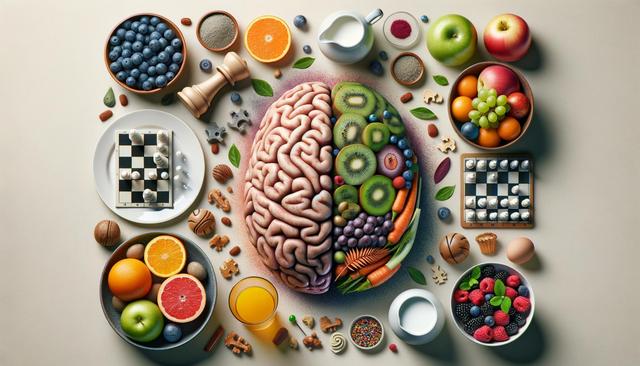Understanding Cognitive Wellness
Cognitive wellness refers to the ability to think clearly, learn efficiently, and retain information over time. It plays a crucial role in daily functioning, emotional health, and overall quality of life. As people age, maintaining cognitive function becomes increasingly important to preserve independence and prevent cognitive decline. While genetics do influence brain health, lifestyle choices can have a significant impact as well. Practicing behaviors that support brain function can help maintain cognitive sharpness throughout life.
These behaviors include getting adequate sleep, engaging in regular physical activity, staying socially connected, and managing stress. Sleep allows the brain to consolidate memories and clear toxins, while physical exercise helps increase blood flow to the brain. Social interaction and mental engagement stimulate neural networks, which can delay the onset of cognitive decline. Lastly, reducing chronic stress through mindfulness practices can protect the brain from harmful effects linked to prolonged cortisol exposure.
Key Nutrients That Support Brain Function
The food you eat directly influences brain performance and long-term cognitive health. Certain nutrients are particularly vital for maintaining optimal brain function. These include:
- Omega-3 fatty acids – found in flaxseeds, chia seeds, and walnuts, they support neuron structure and communication.
- B-vitamins – especially B6, B12, and folate, which help reduce levels of homocysteine, a compound linked to cognitive impairment.
- Antioxidants – such as vitamin C, vitamin E, and flavonoids from berries and leafy greens, which help combat oxidative stress in brain cells.
- Choline – found in eggs and cruciferous vegetables, important for memory and brain development.
A balanced diet rich in these nutrients can support clearer thinking, improved memory, and better focus. Hydration is also crucial, as even mild dehydration can impair cognitive performance.
Brain-Friendly Eating Habits
Beyond individual nutrients, overall eating patterns play a role in cognitive wellness. A brain-friendly diet emphasizes whole, minimally processed foods and limits added sugars and saturated fats. Experts often recommend dietary approaches that prioritize plant-based foods, healthy fats, and lean proteins. Some principles to consider include:
- Eating a variety of colorful fruits and vegetables for a broad range of antioxidants.
- Choosing whole grains like oats, barley, and brown rice to maintain steady energy levels.
- Incorporating sources of healthy fats such as avocados, nuts, and seeds.
- Limiting processed foods and refined sugars, which can contribute to inflammation and brain fog.
Cooking at home when possible also allows better control over ingredients and portion sizes. Meal planning can ensure regular intake of brain-nourishing foods while reducing reliance on convenience options.
Lifestyle Habits that Enhance Cognitive Health
Nutrition is only one part of the cognitive wellness equation. Daily habits also influence brain function and resilience. Incorporating activities that challenge the mind and body can help strengthen cognitive reserves. These activities may include:
- Puzzles, board games, or learning a new language to keep the brain active.
- Regular aerobic exercise, such as walking or cycling, to increase blood flow and promote neurogenesis.
- Mindfulness meditation or breathing exercises to reduce stress and enhance mental clarity.
- Spending time outdoors and in green spaces to improve mood and concentration.
These habits, when practiced consistently, can enhance focus, memory retention, and problem-solving skills. Moreover, reducing screen time and ensuring adequate rest can further support mental well-being.
Creating a Personalized Cognitive Wellness Plan
Everyone’s path to cognitive wellness is unique, depending on individual needs, preferences, and health conditions. Creating a personalized plan involves assessing current habits, identifying areas for improvement, and setting realistic goals. Consider the following steps:
- Track your daily diet and note how you feel mentally after meals to identify foods that support or hinder focus.
- Set achievable goals like adding one extra serving of vegetables per day or walking for 20 minutes.
- Build a support system of friends, family, or online communities to stay motivated and share tips.
- Schedule regular wellness check-ins with healthcare providers to monitor progress and adjust plans if needed.
By gradually integrating these strategies, individuals can create a sustainable routine that supports both short-term mental clarity and long-term cognitive resilience. Consistency is key, and small changes can lead to significant benefits over time.
Final Thoughts on Supporting Your Brain Health
Fostering cognitive wellness involves more than just occasional efforts; it requires a holistic approach that includes nourishing food, regular mental and physical activity, and thoughtful lifestyle choices. Whether you’re looking to stay sharp as you age or simply function more effectively day to day, these strategies provide a strong foundation. By understanding your brain’s needs and adopting habits that support its function, you’re taking meaningful steps toward long-term mental vitality and well-being.



Leave a Reply